By Lisa Bland –
Brock Endean grew up in the rural community of Chase, BC, in unceded Secwépemc territory. He loves to learn and explore the natural world and is currently a youth director on the Fraser Basin Council (FBC). Brock is Métis on his mother’s side and has volunteered and worked with many rural Indigenous communities. He is passionate about community development and youth empowerment. His background and education includes tourism, facilitation, economic development, Indigenous education, and local and international volunteer work.
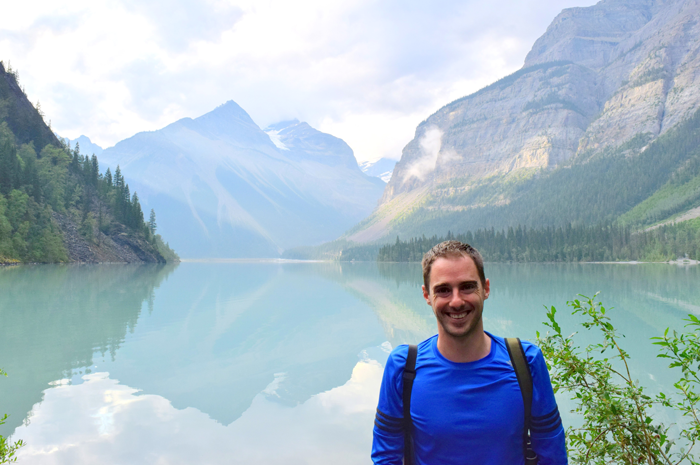
Brock currently runs a consulting firm that specializes in supporting the development of rural communities and non-profit organizations, as well as youth engagement. “What I like about doing this type of work is having a sense of purpose in watching how people come together—and the way communities form and how they support each other,” he says. “Supporting communities at this level is critical for how we grow as a world.”
Brock was drawn to the Rivershed Society of BC (RSBC) because of its base in grassroots community action. He sees many similarities between FBC and RSBC in bringing people together to advance sustainability in the Fraser River Basin and throughout BC. “RSBC is engaging a network of communities and individuals passionate about where they live and addressing the issues they face,” he says.
Brock was also drawn to RSBC’s model of Rivershed CPR—conservation, protection, and restoration. “I love this model and hadn’t heard of it before,” he says .“Often, when we talk about environmental matters such as sustainability and protection, we think we have to do it all. This can overwhelm people. If we look at solutions from the perspective of Rivershed CPR, it’s easier to break things down and identify areas for focused action.”
Brock was sponsored by the FBC to join RSBC’s Sustainable Living Leadership Program (SLLP) along with fellow participant and FBC youth advisor, Riley Brennan, to develop a heritage storymap of the Fraser River—an online, visual map of various locations highlighting their cultural, natural, and recreational heritage values.
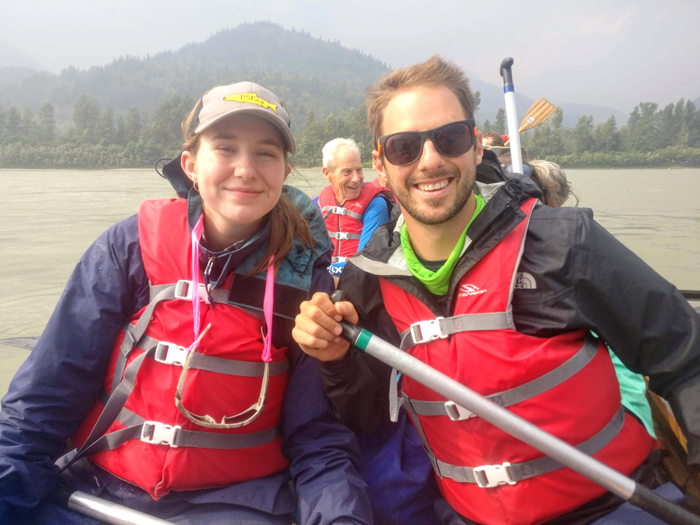
“Originally, Riley and I focused on interviews and taking photos along the trip for the project but as we journeyed down the river, our minds opened up to so much more,” he says. “We were able to pull in information and locations that would have been missed if we had used online research or books, such as in the Fraser Canyon where it’s not road accessible. We accessed stories and places of significance along the Fraser River that few have the opportunity to see.”
Brock and Riley also gathered information about youth perspectives on climate change, which will be used in a future interactive map project for FBC. “Our project went from one focus to a list of things, and we saw potential partnerships for youth involvement and collaboration with various community groups,” says Brock. “It also opened my eyes to where I could support youth in community development work in the upper Fraser rivershed.”
As a result of the journey, Brock shifted more towards an environmental focus on rivers and watersheds when looking at the bigger picture of how economy, governance, leadership, environment, and sustainability fit into the framework of community. “I also want to support youth in taking on leadership roles in their communities and learning from the older generation,” he adds.
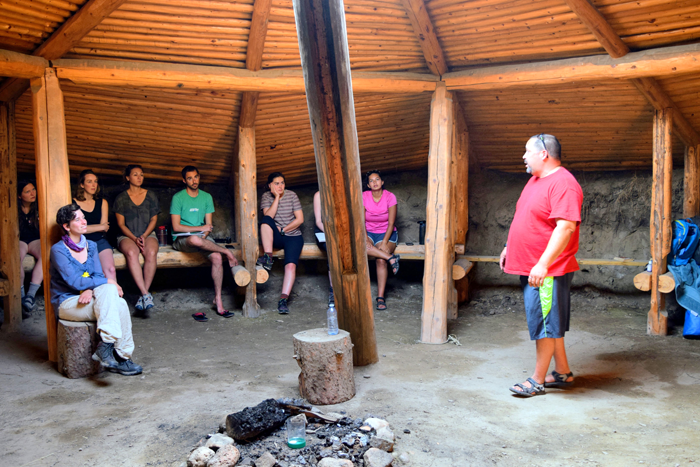
Brock gained valuable insights into teamwork on the trip as he observed the group’s overall positive inter-dynamics. “Learning to observe more and pick up on different people’s styles, when to offer help, and when to back off, was good for me,” he says. “We need different styles of relating and they all lead down different paths, leading to many options. I learned to ‘hold everyone capable.’ Allowing others to take the lead and not overcompensating or presuming their abilities is something I will bring into my volunteer work.”
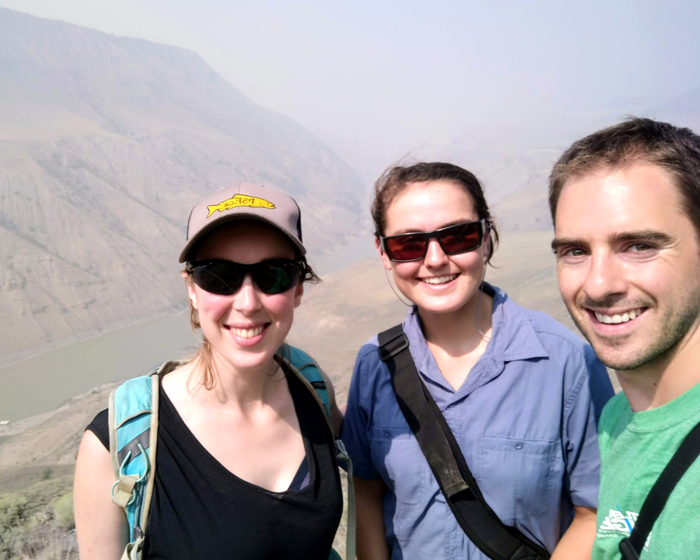
One of Brock’s highlights on the journey was the Cathedrals camp spot in the Fraser Canyon. “After returning from my solo hike, the skies had cleared from the smoke of the forest fires,” he explains. “I looked up at the hoodoos, and it felt raw and real—there were no train sounds or trucks, just us and the sound of the rocks falling as the bighorn sheep climbed on the other side of the river. It was my Kodak moment of the whole trip. I return to this place in my mind when visualizing a peaceful place near the water.”
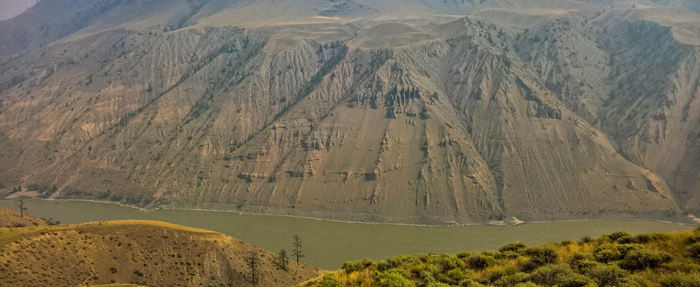
Another highlight was visiting the community of Dunster, BC in the Fraser headwaters, where the group was welcomed by the community and an amazing food banquet. “Community members chatted with us and we exchanged stories,” he says. “They were eager to hear about our journey down the river. It was nice to see how everyone cared for each other and for their home and community.”
Brock also valued the teamwork aspect and networking with other participants. “We know each other more deeply than some friends and work colleagues I’ve known for 10 years because of our experiences together,” he says. “At the start of our journey, one of our facilitators said, ‘Just be honest, and be yourself.’ I realized I didn’t need to be somebody else to be in this group. If you think you have to do or be something else and try to hold that for 27 days, you’re going to crack.”
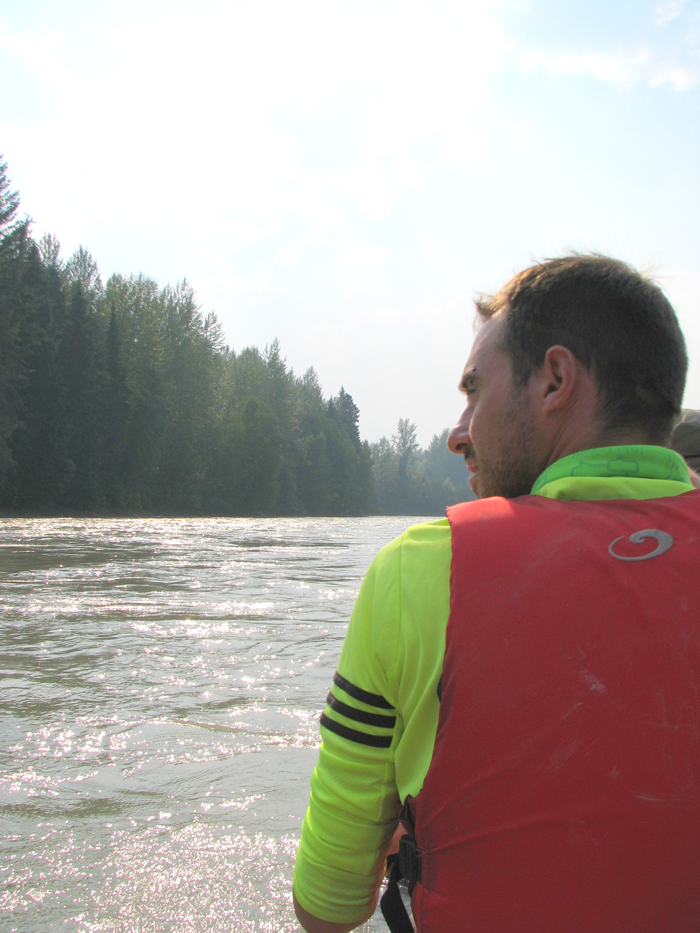
“This journey was about being present, being there, being ourselves, and enjoying one another,” he says. “I appreciated everyone and laughed more than I ever have. I felt relaxed and comfortable.”
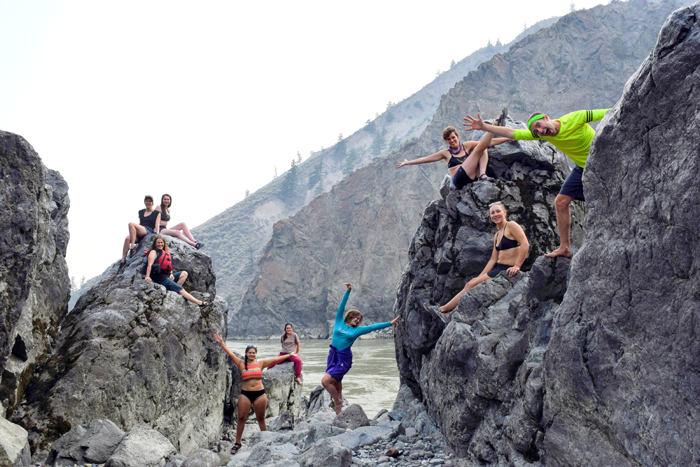
When the group arrived on home turf at McDonald Beach Park in Richmond, on the last stretch to paddle to the Salish Sea, the sun was setting, and “It felt like a very West Coast moment,” Brock says.“I thought, wow, we made it to the ocean. We made it through all these challenges, we’re all alive, and we don’t hate each other!” he laughs. “I thought to myself, I could do this again—27 days wasn’t long enough!”
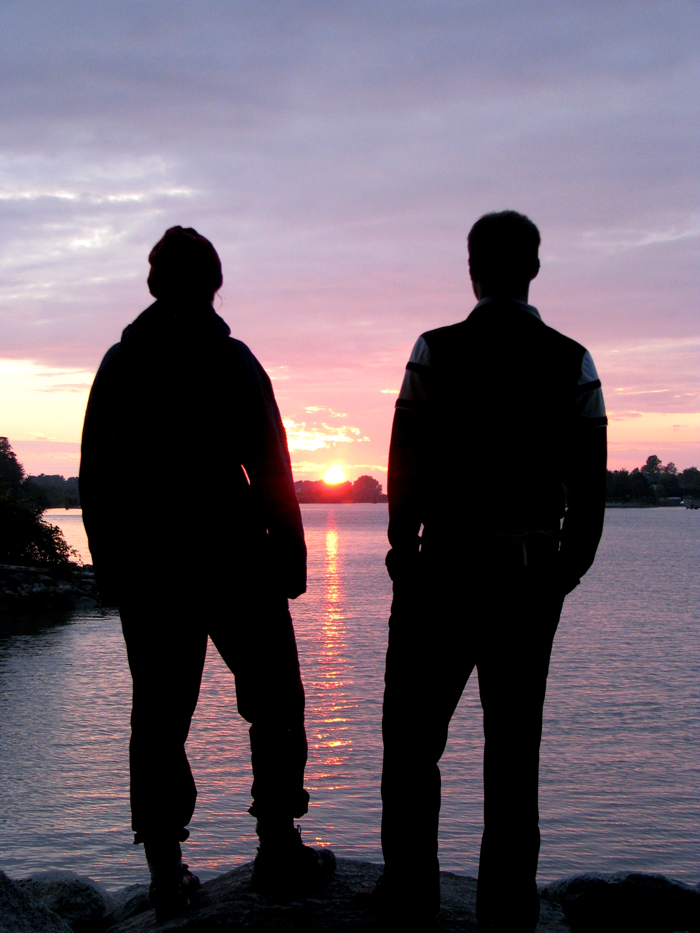
Brock also learned that what happens up in Mt. Robson affects what happens down in Vancouver. “I’ve gained more insight into the urban and rural divide,” he says. “From growing up in a small town, creating community is very important to me. A lot of people in the city don’t appreciate or know about our smaller, rural communities. I try to inform people they can stay in a small town and still have a great career. We need to be looking out for each other and supporting each other—and in rural communities it’s easier to see how the economy and the environment are intertwined.”
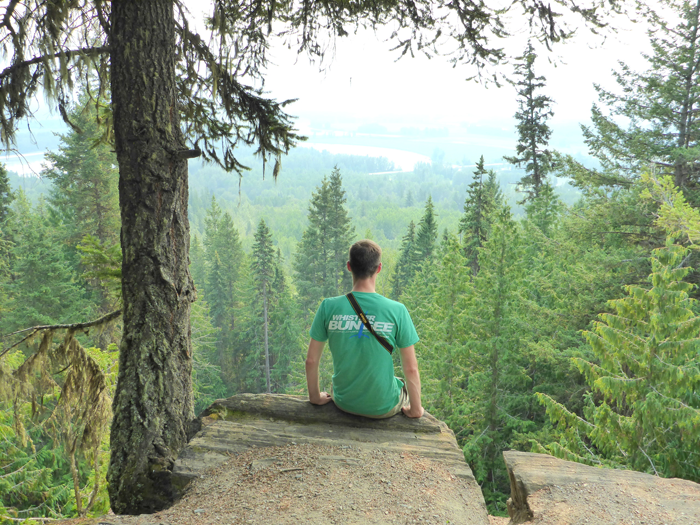
“My hardest experience since returning home was getting back on the skytrain, with all the noise and crowdedness,” he says. “Since the trip, I’ve decided to redirect my focus towards conservation, community, youth and the outdoors, and opportunities that align with my values. Before the trip, I hadn’t been taking the space and time to be outside, hiking, or spending time with my dogs. The journey helped me to disconnect from my phone and I realized that the world keeps turning even if you aren’t plugged in.”
Looking towards the future, Brock is considering more travel and international development work, and taking to heart insights he gained about living out his core values. “There are many great champions here working on the Fraser River Basin,” he says. “My thoughts have turned to how I can help advocate for key rivers elsewhere in the world, such as in Mexico or Peru, where I can help to empower locals to protect their riversheds.”

https://rivershed.com/get-involved/sustainable-living-leadership-program/about-the-sllp/
